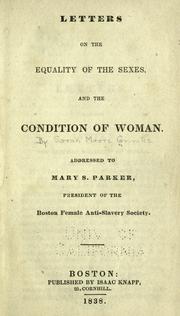In my previous post of Pioneering Women of Civil War America (Sixteenth Installment) about Mary Ann Ball Bickerdyke, I promised I’d feature two women of Civil War times who were “Subversive Sisters from the South!” How’s that for some good alliteration? Back to business. . .let me now present to you:
Sarah Moore Grimké (1792 – 1873)
Angelina Emily Grimké Weld (1805 – 1879)
I believe I can guess what you’re thinking: The above portrayals of the Grimké sisters give them a mighty grim appearance, but I assure you there is nothing in their very natures that could condemn them to such. In fact, they were animated in their fierce activism against the very grim social, political, religious, and moral ideals that shaped the United States of America during their time—as you shall soon see.
What made the Grimkés “Subversive Sisters from the South?”
They were:
The first Southern-American women to advocate for the abolition of slavery and women’s suffrage and equal rights, first from below and then above the Mason and Dixon line while they lived in South Carolina and after they moved to the North.
Deemed the most fanatical of both men and women of their day in terms of their openness against slavery and in favor of women’s suffrage and equal rights, especially when public speaking was reserved for men only.
The first female representatives for the American Anti-Slavery Society.
Sarah was:
The first woman to write and publish an article in the United States (New England newspaper) regarding women’s equal rights. And a compilation of her letters to others of concern was published in book format in 1838 as shown below:
Letter on the Equality Of The Sexes and the Condition Of Woman
Today, her book is still considered an important social, political, and religious work reflective of her times. One of her quotes within shows a parallel between slavery and women’s suppression:
“Here now, the very being of woman, like that of a slave, is absorbed in her master. All contracts made with her, like those made with slaves by their owners, are a mere nullity. Our kind defenders have legislated away almost all of our legal rights, and in the true spirit of such injustice and oppression, have kept us in ignorance of those very laws by which we are governed. They have persuaded us, that we have no right to investigate the laws, and that, if we did, we could not comprehend them. . . .”
But Angelina was the more extroverted of the two sisters. As such, she was:
The first women (circa 1837) to be recognized as the most powerful public speaker for the abolition of slavery—UNRIVALED by most male orators of her time and incredibly not ostracized for speaking in public, especially before mixed-gender audiences.
The first woman (circa 1837) to successfully debate two men before a public congregation (Massachusetts) over a woman’s right to a public voice.
The first woman to appear before a legislative body in the United States when she argued against the evils of slavery before the state of Massachusetts.
The first woman to write and have published (1836) a pamphlet pleading Southern women to rise up and take a stance against slavery as pictured below:
.jpg)
Appeal to the Christian Women of the South
In her appeal, she raised the teachings of Christ to “do unto others as you would have done unto you.” As you can imagine, her work was popular in the North and burned in the South. Also, as a devout Christian, she attacked the churches for their misinterpretations of biblical passages in support of slavery and challenged them to spearhead the crusade to eradicate the evil institution.
What in these two sisters’ background incited their work?
Very simply, they were born and raised on a wealthy South Carolinian plantation where they came to abhor the institution of slavery after they witnessed its cruelties. Two examples: The sight of a young slave boy whose gait was permanently marred from the scars of whippings on his back and legs. And incessant screams exploding from the workhouse as slaves were dragged across a treadmill strung by their arms as punishment for even minor infractions. Also, they saw the injustice and absurdity in the standard societal practice of allowing sons, but not daughters, to attain a higher education outside of the home.
I’ll end here with the hopes that you’ve enjoyed this post and that I’ve whet your appetite to learn more about Sarah and Angelina Grimké at the following places:
Video on My Complimentary Civil War Women Website.
Articles Online at Women’s History.org:
Book on Amazon:
Letters on the Equality of the Sexes and the Condition of Woman by Sarah Moore Grimké
Stay Tuned for the Next Installment of Pioneering Women of Civil War America, Which Promises to Feature. . .
. . .A Savvy Sleuth!



Pingback: Pioneering Women of Civil War America (Eighteenth Installment) - Lisa Potocar ~ Author
Pingback: Pioneering Women of Civil War America ~ Sarah and Angelina Grimké – Welcome to Civil War Women